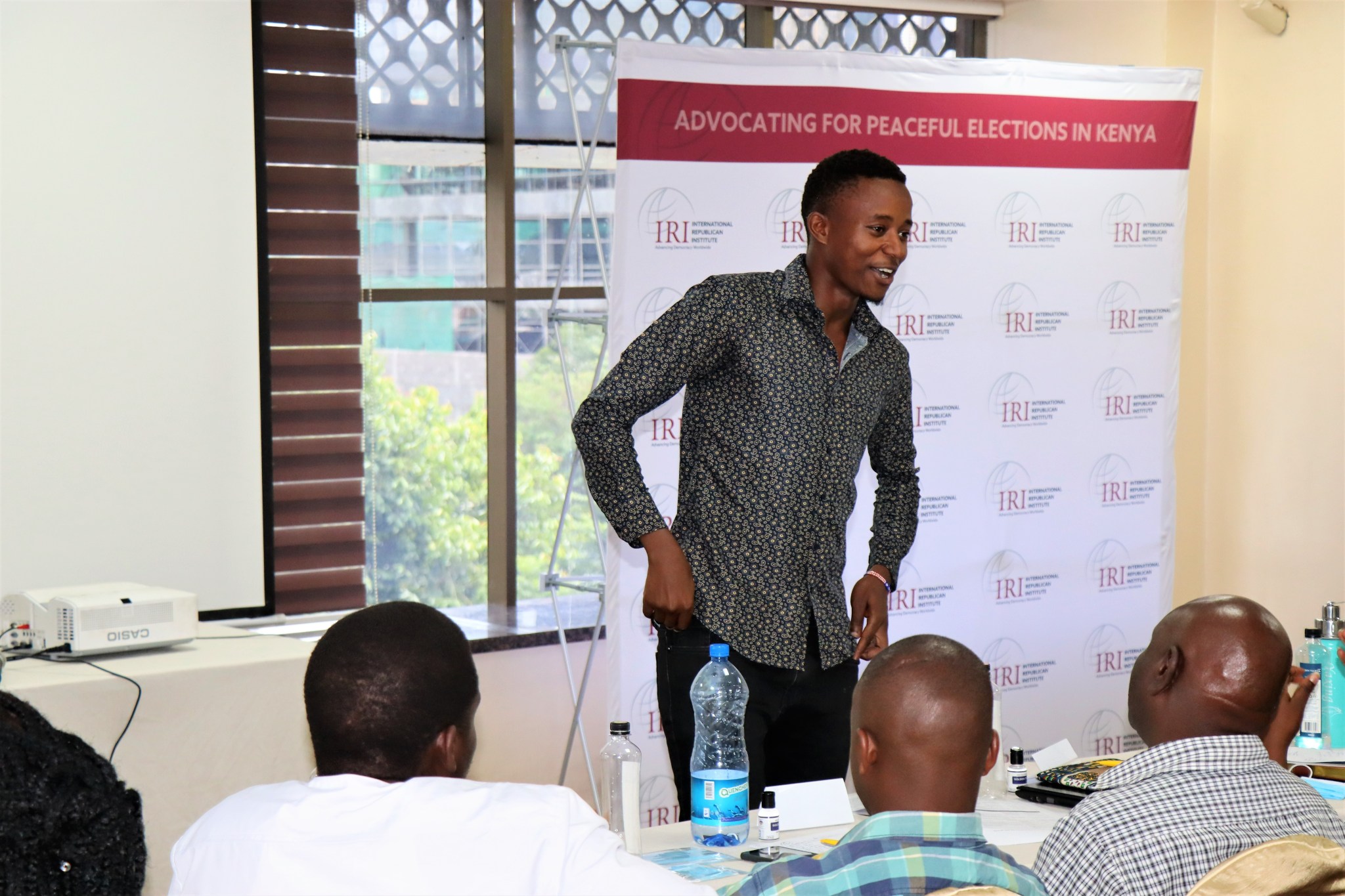IRI’s Innovative Approach to Mitigating Electoral Violence in Kenya

Amid a dynamic environment of shifting electoral alliances and a term-limited president, Kenyan voters are energized for the decisive political transition set to take place following presidential elections slated for this August.
As a backdrop, Kenya has a history of electoral violence, conducted largely along ethnic lines, which was demonstrated most notably following the 2007 presidential election. Kenya remains characterized by ethnically aligned, zero-sum political contestation and a dire economic reality, especially affecting youth. Political elites may attempt to capitalize on this context through a continuation of strategies employed in previous presidential elections in 2007, 2013, and 2017. They incentivize unemployed youths to engage in ethnically motivated incitement and intimidation, generating significant concerns for the resurfacing of electoral violence this year.
Building on its previous work with mitigating and addressing electoral violence in Kenya, the International Republic Institute (IRI) is employing locally-informed and research-based programming in advance of these elections. Informed by past IRI research and in-country analysis, the “Supporting Peaceful Elections in Kenya” project will implement three approaches to mitigate potential electoral violence. Critically, these approaches – elite pacts and pledges, peace messaging, and long-term security monitors – are tailored to local contexts and the specific risks each faces.
IRI’s first approach, elite pacts and pledges, is a “top-down” method to mitigating electoral violence that focuses on the most common inciters of violence: politicians. These agreements are designed to publicize commitments to nonviolence and incentivize adherence to those commitments. This approach will only be implemented in counties where elites are known to face reputational costs for betraying their commitments. In counties where citizens do not punish elites when they fail to honor pledges for non-violence, politicians have little incentive to adhere to any public facing pacts. Consequently, pacts and pledges will be limited to counties well-suited for the intervention.
Peace messaging, which involves disseminating anti-violence messages through social media, traditional media, and credible actors in Kenya society, is IRI’s “bottom-up” approach that targets the incited, rather than the inciters. Interviewees in all five target counties indicated support for peace messaging. To avoid common pitfalls of untargeted peace messaging, IRI will target specific groups of individuals and use tailored language based on each county’s vulnerabilities. IRI is also working with respected community leaders to disseminate the messaging, maximizing credibility among Kenyan citizens. To discourage violence throughout all parts of the electoral process, peace messaging will begin two months before the general elections and will conclude one month after the general elections.
Finally, IRI is deploying long-term security monitors (LTSMs) to the five target counties, which will serve two purposes related to mitigating electoral violence. The LTSMs will play an early-warning role to detect threats by collecting data on electoral violence, intimidation, and harassment in real-time. LTSMs will subsequently disseminate that information to IRI, civil society organizations, political party leaders, the Kenyan Ministry of the Interior, and the diplomatic community to enable swift responses to violence. The presence of monitors is also expected to have a deterrence effect. Based on the needs and profile of each county, some will only have a limited contingent of LTSMs to gather data, while others that are more likely to see a deterrent effect will receive more monitors. The makeup of the LTSMs is also informed by IRI’s research on whether local monitors or ones from other areas of Kenya will be better received by the individuals living in each county.
Current electoral violence mitigation strategies are often untargeted and one-dimensional, focusing only on one programmatic approach. IRI will address these programmatic shortcomings with an innovative new method, and consequently play a positive role in enabling the Kenyan people to exercise their rights to participate freely and safely in this year’s elections. After piloting this programming in Kenya, IRI will apply the lessons learned to future projects to mitigate electoral violence around the world.
Top